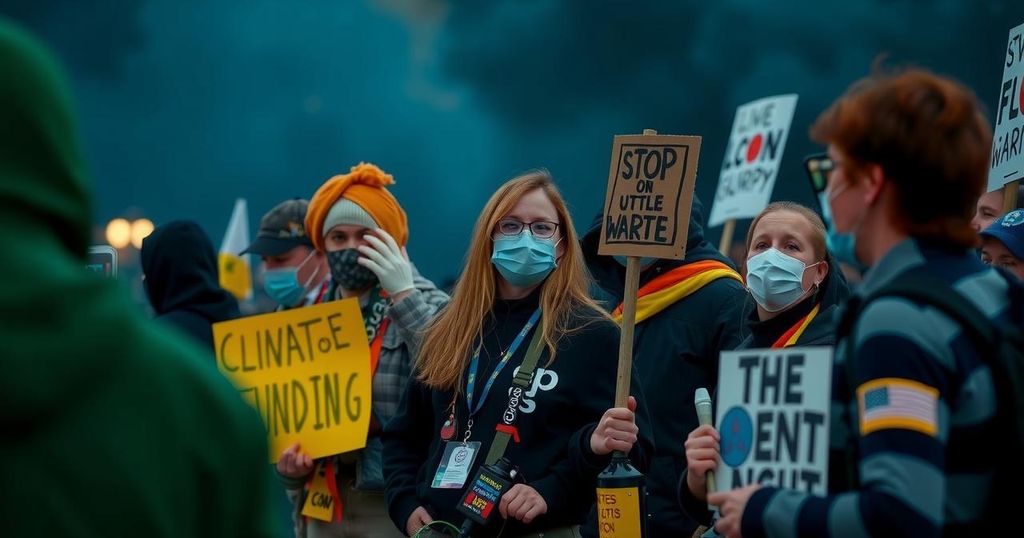Refugee Activists Urge Enhanced Climate Support at COP29

At COP29, refugee activists highlighted the urgent need for increased funding and support for those affected by climate change. They illustrated the complexities of displacement in relation to environmental hazards and called for inclusion in climate finance discussions. The UNHCR unveiled a report indicating that a significant number of displaced people also face climate challenges, stressing the injustice of current funding distributions.
During the COP29 summit held in Azerbaijan, refugee activists condemned the lack of adequate funding and support for those displaced by climate change. Grace Dorong, a former refugee from South Sudan, shared her harrowing experiences of fleeing conflict and facing climate hazards such as droughts and flooding. She articulated that displaced individuals often find themselves trapped in a cycle of danger, emphasizing, “Refugees have no escape.” The UN Refugee Agency (UNHCR) launched a comprehensive report highlighting that three-quarters of displaced people also combat the effects of climate change. It was noted that while vulnerable populations suffer most from climate impacts, they seldom receive needed climate financing; 90% of such funds are allocated to wealthier nations. To address this disparity, UNHCR recently signed a Memorandum of Understanding with the Green Climate Fund to enhance resource access for fragile communities. A newly formed coalition, Refugees for Climate Action, has also emerged to empower displaced individuals and advocate for their inclusion in climate discussions, an initiative underscored by actor Theo James who highlighted the dual struggles faced by refugees. Okot urged for a commitment to integrate refugee voices in climate action, stating, “We stand committed to advocating for the voices that often go unheard and overlooked.”
The intersection of climate change and forced displacement presents a growing challenge for millions worldwide. As climate impacts intensify, refugees and other displaced populations frequently find themselves in situations where they are vulnerable not only to environmental shocks but also to ongoing conflicts. Recent studies indicate that many displaced individuals resettle in climate-sensitive regions, worsening their living conditions. The lack of funding for climate adaptation in these communities exacerbates their plight, highlighting a significant gap in international climate financing strategies.
The ongoing discussions at COP29 emphasize the urgent need to address the plight of refugees and displaced individuals affected by climate change. Advocacy for increased funding and systemic inclusion of marginalized voices is crucial for fostering resilience among the most vulnerable populations. The launch of the Refugees for Climate Action coalition marks a pivotal step in amplifying these voices, as stakeholders seek to forge a path towards climate justice and sustainable support for displaced communities.
Original Source: www.unhcr.org






